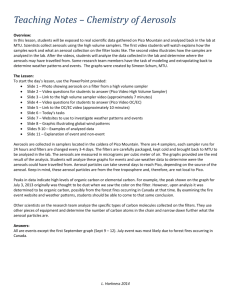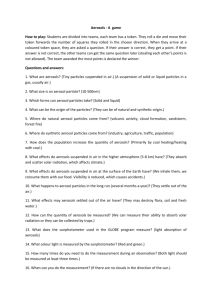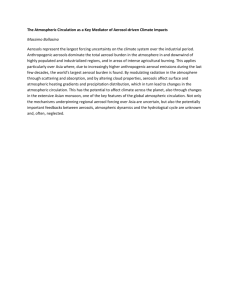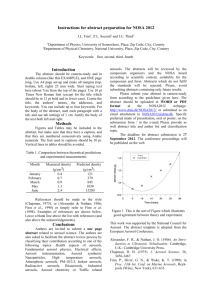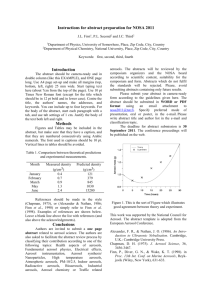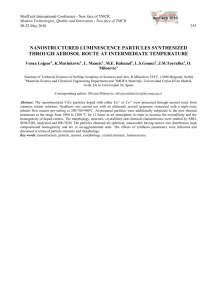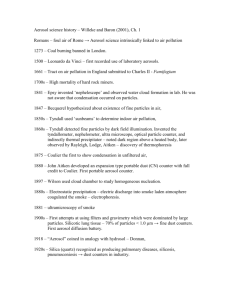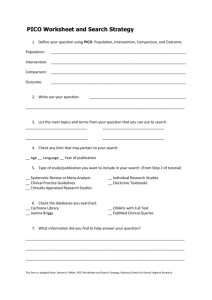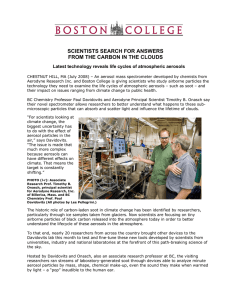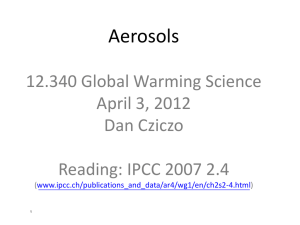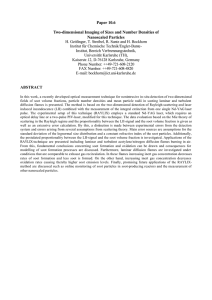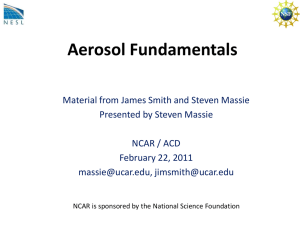Day 2 * Classification of Aerosols
advertisement
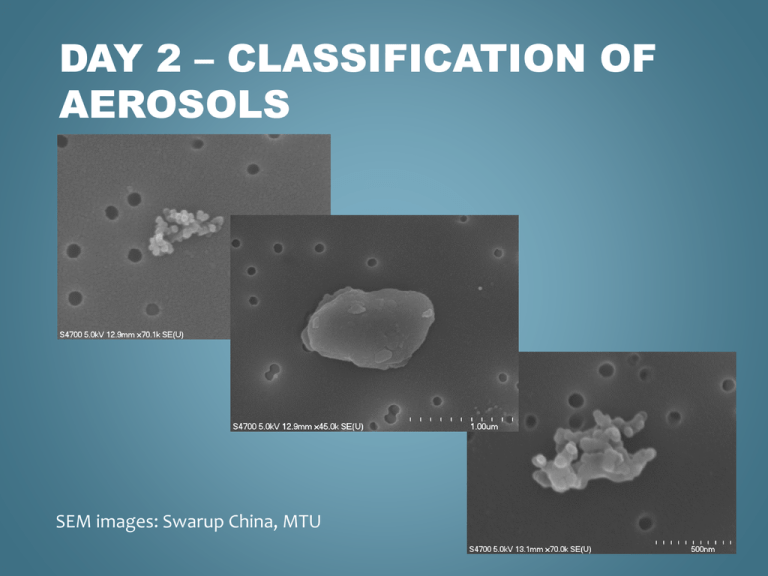
DAY 2 – CLASSIFICATION OF AEROSOLS SEM images: Swarup China, MTU ANSWERS TO YESTERDAY’S QUESTIONS • Find the elevation of Pico Mountain. – 2,351 meters (7,713 feet) • Where is Pico Mountain located? – Located on the island of Pico Photo: www.worldatlas.com – Island archipelago of the Azores – Islands lie along the Mid Atlantic Ridge on 3 separate plates in the North Atlantic • Describe the mountain. – Stratovolcano – Piquinho – Caldera (summit crater) Photo: L. Harkness ANSWERS TO YESTERDAY’S QUESTIONS • What is the boundary layer in terms of the atmosphere? – The first cloud layer • What is the free troposphere? – Air above the first cloud layer (boundary layer) • What is the altitude of the marine boundary layer? – 1200 – 1600 meters ANSWERS TO YESTERDAY’S QUESTIONS • Based on the answers, why is Pico Mountain a good place to study the atmosphere? WHAT IS AN AEROSOL? HOW ARE AEROSOLS CLASSIFIED? The ICO and samplers at sunset. Photo: L. Harkness WHAT IS AN AEROSOL? • Aerosol: small particles in the air; can be white, gray, or brown in color • Soot: organic aerosol particles • Dust: mineral particles • Morphology: study how the aerosol changes in the atmosphere TWO WAYS AEROSOLS ARE TRANSPORTED: • Short Range Transport: local pollution; stays below the boundary layer (out of the free troposphere) • Long Range Transport: propelled into the free troposphere; can travel long distances – Ex: North America to Europe – What scientists are looking at on Pico www.intechopen.com VIDEO NOTES: • Briefly describe how aerosols are collected. • Describe differences between collection for SEM and TEM. VIDEO: COLLECTING AEROSOLS IN THE ICO Click here for the video!! Video: L. Harkness DUST OR SOOT? Today’s Task: For each aerosol particle image, classify as either soot or dust. Spherical Particles = soot SEM Images: S. China, MTU Irregular Particles = dust
